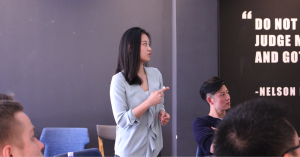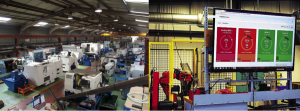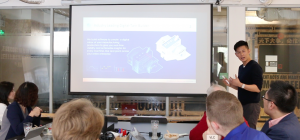On Tuesday, Collective Responsibility hosted its monthly Executive Luncheon focused on Industry 4.0: AI and Impacts on Supply Chain. This invitation-only event brought together a range of business leaders who are interested in understanding how the opportunities and challenges of transitioning to an industry 4.0 economy requires them to re-calibrate their business models.
Richard Brubaker, Founder and Managing Director of Collective Responsibility (CR), opened the event by giving an overview of CR’s recent research on labor issues, describing concerns related to labor displacement and asking participants to take a wider view on automation and sustainability.
Following Richard’s introduction, two individuals of China’s leading firms on industrial IoT, Tianji Robotics, Shenzhen Everwin and INREVO, presented their on-the-ground experience and insights.
Automation as a Competitive Advantage
To provide a better understanding of the growing importance of robotics on the factory floor, Cici Chen, Vice President of Tianji Robotics, spoke about her company’s automation and robotic arm solutions. In addition to showcasing the company’s work in the electronics industry, Chen described the capabilities of today’s robots and how these capabilities spark concern over the replacement of human labor in industries.
However, as stated by Chen, it is important to remember that automation is helping to improve the quality and skills of the work force, thus providing higher wages to those workers, improving the quality of products and creating significant reductions in waste.

From Overwhelming Data to Valuable Information
Eric Tian, Founder and CEO of INREVO Inc., discussed how many factories are investing and buying sophisticated and expensive machines that eventually create waste and inefficiencies in production due to a lack of transparency on the factory floor.

Tian believes machine analytics is an asset to any company utilizing AI technology because the analytics are not only a reactive measure when detecting malfunctions, but they also increase workers’ accountability and help engineers to improve the design of robotics. These analytics give factories the ability to uncover significant hidden costs and reduce waste in energy, materials, and labor.

From AI to Sustainability
While the concern of how automation and robots will impact the labor force is valid, on the macro level, AI technology have the ability to improve sustainability in a range of areas. AI technology greatly improves efficiency, thus reducing large sums of waste.
To learn more about our future events, or about becoming a member of The Collective, click here.
